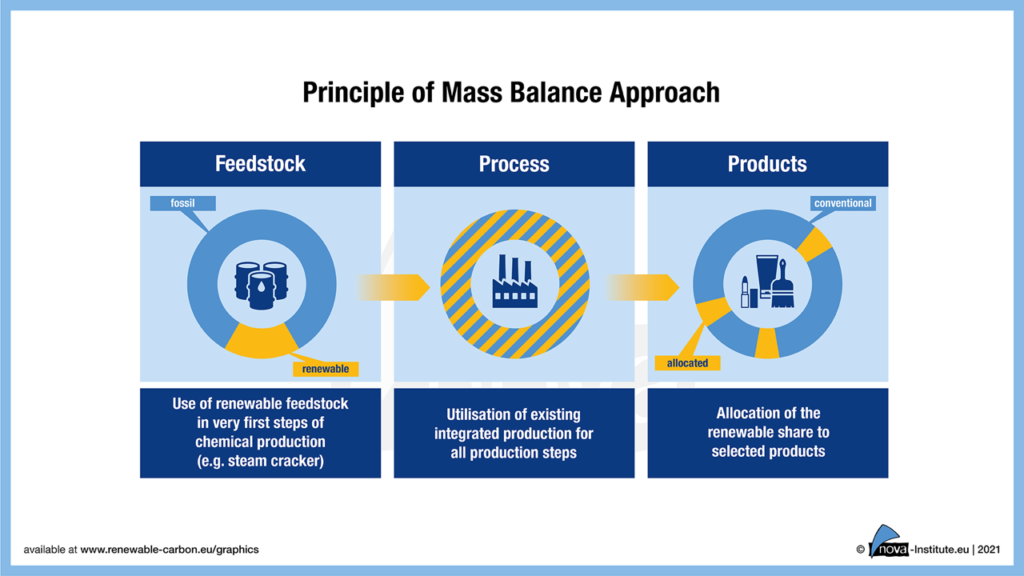The world is making a gradual transition towards sustainability by adopting more eco-friendly products and reducing the consumption of fossil resources. In fact, some industries have innovated solutions that are completely getting away from the traditional ways of sourcing raw materials. That being said, it is not always possible to make this shift. This is where the mass balance approach might help.
A simple yet effective method, the mass balance approach aims to achieve a climate-neutral circular economy. This is good news for anyone who wants both quality and sustainability.
In this blog, we take a closer look at the mass balance approach to understand what exactly it is and how can it help us build a greener and more sustainable future. Let’s begin:
What is Mass Balance Approach?
The mass balance approach is a method that is based on the principle of conservation of mass. It states that the total amount of mass in a system must remain constant over time. It is often used in fields like environmental science, chemical engineering, and geology to study the distribution, transport, and transformation of various substances in the environment.
Now, in terms of sustainability, this method makes it possible to reduce the use of fossil raw materials by replacing them with sustainable materials.
Let’s take an example of a hybrid vehicle. Unlike electric vehicles, hybrid vehicles run on both fossil fuels and electricity. They are not totally pollution-free, but they are better than diesel or petrol-powered vehicles. The mass balance approach works on the same principle. It helps businesses in the chemicals and plastics industry to incrementally transition to using sustainable feedstocks, without the need to set up separate production lines for sustainable products.
Benefits of The Mass Balance Approach
Conserves Fossil Fuels
The mass balance approach helps businesses meet sustainability by reducing the use of fossil fuels while also maintaining the quality of the products. In the process, they also conserve non-renewable fossil fuels and commit their dedication to a healthier planet.
Offers a Practical Transition
A complete transition to sustainability often requires high capital, change of infrastructure, and team training. However, by choosing a mass balance approach, industries can easily integrate the sustainable products into the existing production system without spending too much (both financially and timewise).
Versatile in Use:
The mass balance approach can be applied to different industries and different products. So, whether it is a plastic company or an electric brand, everyone can fill the gap of sustainability within a lesser time period.
Easy To Track
The mass balance approach is also known for its transparent bookkeeping. There is a mass balance system that can be used to maintain a record of the chain of custody, material composition, and production. It is also guaranteed by third-party certification, making it easier to track and measure.
How To Implement a Mass Balance Approach?
Here is a step-by-step way that shows how a business can adopt the mass balance approach:
- The first step is to identify the chain of custody model that is suitable for your market and your business operations.
- Then, you need to select a certification scheme based on your business, the benefits, market demand, scalability, and standards that will need to be met.
- Once that is done, create a plan or MVP for a system to maintain reliable bookkeeping for the certification.
- It is also crucial to find a certification body for conducting audits for the certification for your sites and products.
- The final step is to create a practical timeline for the implementation of the mass balance approach after considering the operational change and auditing steps required.
Get Expert Consultation
The mass balance approach is an amazing path for industrials to transition to sustainability in a continuous manner. However, they need to understand how exactly to adopt the mass balance approach. For this, they can either get a consultation from experts or read thorough reports on the mass balance approach. This will ensure not just a proper implementation but also cost and time- saving in the end.
